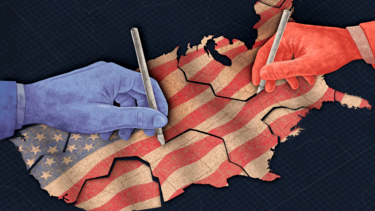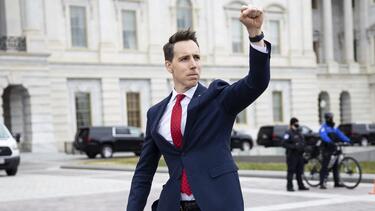Politics and Policy
The Problems with a Socialist Vision for NYC
Yale’s Jeffrey Sonnenfeld and co-authors suggest that some of New York City mayoral candidate Zohram Mamdani’s socialism-inspired proposals, such as city-owned grocery stores, are likely to run into inefficiencies and unanticipated downsides. They write that capitalism can be a better engine of progress.

Taken to an Extreme, Gerrymandering Could Lead to a One-Sided Congress
A new study by Yale SOM’s Kai Hao Yang and Alexander Zentefis finds that partisan gerrymandering, pushed to the limit, could exclude the views of half the country from the legislative process.

Perceptions of Shifts in Public Opinion Are Wildly Off Base
People greatly overestimate how conservative people were in the past, leading to an exaggerated impression of liberal progress, according to a study by Yale SOM’s Jason Dana and Adam Mastroianni of Columbia Business School.

Businesses Staying in Russia Are Underperforming the Market
A new analysis from Prof. Jeffrey Sonnenfeld and his team suggests that the firms cutting ties with Russia are seeing markedly better shareholder returns.

What Does Putin Want?
We asked Yale SOM’s Barry Nalebuff, an expert on game theory and negotiation, what it will take to find common ground and bring the war in Ukraine to an end.

Government Can Be the Solution
For investment banker Carol Samuels ’86, a key value is helping government make a difference in people’s lives, by applying financial tools and long-term thinking.

A Year Later, Most CEOs Are Keeping Their Post-Insurrection Promises
Recent news stories have asserted that corporate leaders are reneging on their pledges to withhold contributions to members of Congress who voted against certifying election results on January 6, 2021. But Yale SOM's Jeffrey Sonnenfeld, who hosted one of the meetings where those pledges were made, writes that CEOs remain deeply troubled by threats to democracy, and that campaign records show that most corporate PACs aren't giving to election objectors.

Controlling the Virus Is the Key to Reducing Inflation
Yale SOM’s William English, a former economist at the Federal Reserve, explains the role of COVID-19 in the spike in prices, considers how policymakers can respond, and confronts the sheer uncertainty of the times.

Without a Local Newspaper, Americans Pay Less Attention to Local Politics
Prof. Michael Sinkinson and his co-authors look back at when television, not the internet, was the new technology chipping away at newspaper circulation. They find that when readership diminished, engagement with local politics did too.

Exploring Alternative Futures
Professor Paul Bracken has spent a lifetime studying the complex systems like international business, technology, and the military. A pioneer of scenario planning, he looks at how organizations really work and how they both drive and are shaped by major trends in order to predict possible futures.

COVID Outcomes in Two States Show That Leadership Matters
Yale SOM’s Anjani Jain and Jeffrey Sonnenfeld on how the rhetoric and policies of Governors Ron DeSantis of Florida and Ned Lamont of Connecticut have shaped their states’ responses to the resurgence of COVID-19—with profound implications for their constituents.
